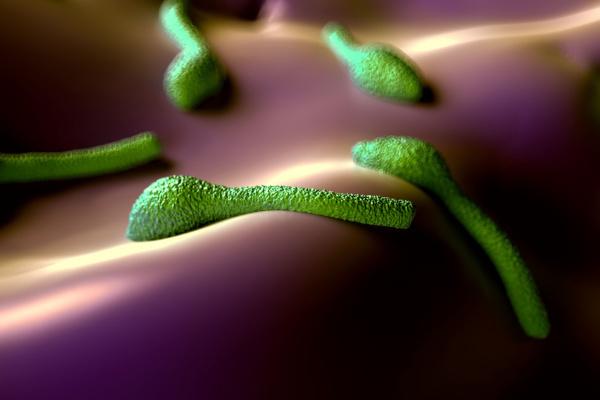O tetanus is a bacterial disease that affects the central nervous system. It is triggered by the bacteriumClostridium tetani, which may be present in soil, animal feces and rusty objects.
THE disease is very serious, but it is not contagious. It is acquired when the bacteria enter the skin through injuries caused, for example, by cuts or animal bites. This type of tetanus is known as accidental. In addition to accidental tetanus, there is also the neonatal tetanus, that is acquired by the baby during cutting the umbilical cord or treating the navel stump. THE vaccination it is one of the main ways to prevent the disease.
Read too: Diseases caused by bacteria
What is tetanus?
tetanus is a disease that compromises the central nervous system, causing generalized muscle contractures. The term “tetanus” is derived from ancient Greek and means “to contract and relax”, a reference to the symptoms of the disease. It can affect people of any age and gender and is not contagious. Lower vaccination coverage is related to higher numbers of cases of the disease.
Accidental tetanus and neonatal tetanus
Tetanus can be classified into two types: accidental and neonatal. O accidental tetanus it occurs due to contamination of wounds, usually by spores present in the environment, such as soil and surfaces of metallic objects. The risk of tetanus is greatest for people who have poorly cared for wounds or who have foreign bodies such as pieces of metal or wood. However, it is important to highlight that, in some cases, accidental tetanus can be observed in patients who do not present an apparent lesion.

O neonatal tetanus, in turn, it occurs due to contamination of the baby after cutting the umbilical cord or during the treatment of the umbilical stump. In these cases, contamination can occur through the use of instruments without proper sterilization or certain substances to treat the stump, such as tobacco, coffee powder and manure.
Also called "seven days' evil", the disease affects the baby in the first 28 days of life and can be prevented with the mother's vaccination. According to the Ministry of Health's Virtual Health Library, “children of mothers vaccinated in the last five years with three doses of the vaccine have immunity until two months of age”.
Read too: Vaccines that all children should take
Tetanus causative agent
Otetanus is caused by a bacteria, the Clostridium tetani, which can be found, for example, in animal feces, dust, soil and objects, especially metallic and rusty ones, in the form of spores.
The spore of the bacteria comes into contact with the lesions and, under ideal conditions, germinates, giving rise to the vegetative form, which is capable of producing a toxin, named tetanospasmin. This toxin spreads through the circulatory system and directly affects the central nervous system, blocking the release of certain inhibitory neurotransmitters. This causes a predominance of excitatory stimuli, which cause generalized muscle spasms.

tetanus symptoms
Tetanus is a disease that compromises the central nervous system. Among the main symptoms of the disease, we can mention:
- difficulty opening the mouth;
- difficulty swallowing;
- muscle stiffness that affects the entire body, especially the neck region;
- facial muscle spasms;
- restlessness;
- irritability;
- difficulty in sucking and frequent crying, in the case of babies with neonatal tetanus.
THE disease is potentially fatal and puts the patient at risk, when, for example, it affects the respiratory muscles.
Diagnosis and treatment of tetanus
O tetanus diagnosis it is clinical, with observation of the patient's symptoms. As the disease is caused by a bacteria, your treatment, therefore, it is based on antibiotics. In addition, medications such as muscle relaxants and sedatives can be administered. In the treatment, anti-tetanus immunoglobulin is also used, which neutralizes the circulating toxin. When this is not available, anti-tetanus serum is used, which stands out for being cheaper, but has a greater allergenic potential and a lower half life.
Read too:Why should we only take antibiotics with a prescription?
tetanus vaccine
Vaccination is the main form of prevention against tetanus. It is indicated from the child's age of 2 months and there is a booster that should be administered every 10 years. This means, therefore, that the vaccine is not exclusively for children, being also administered to adolescents, adults and the elderly. The vaccine is also important for pregnant women, as it prevents neonatal tetanus.
By Vanessa Sardinha dos Santos
Biology teacher
